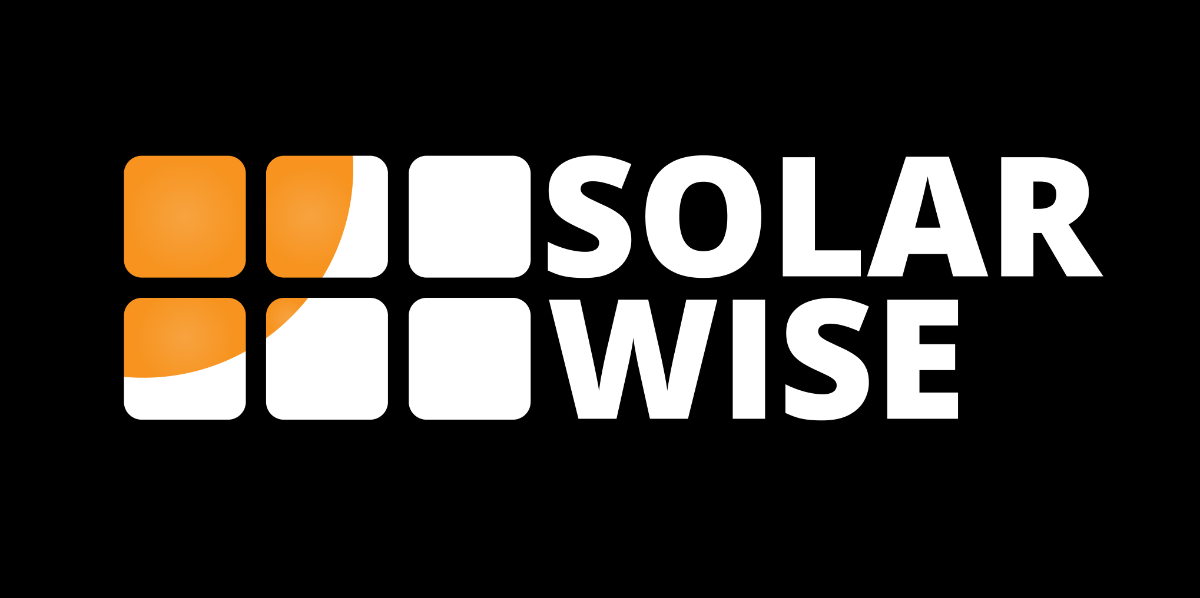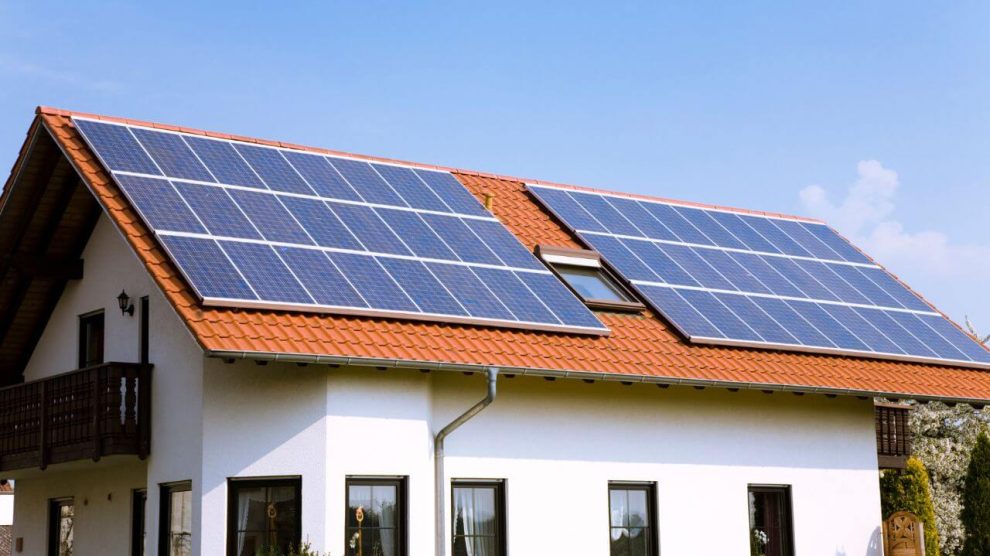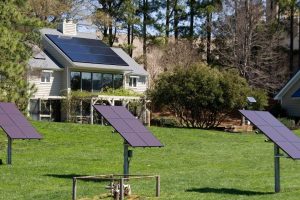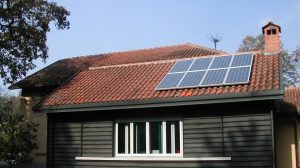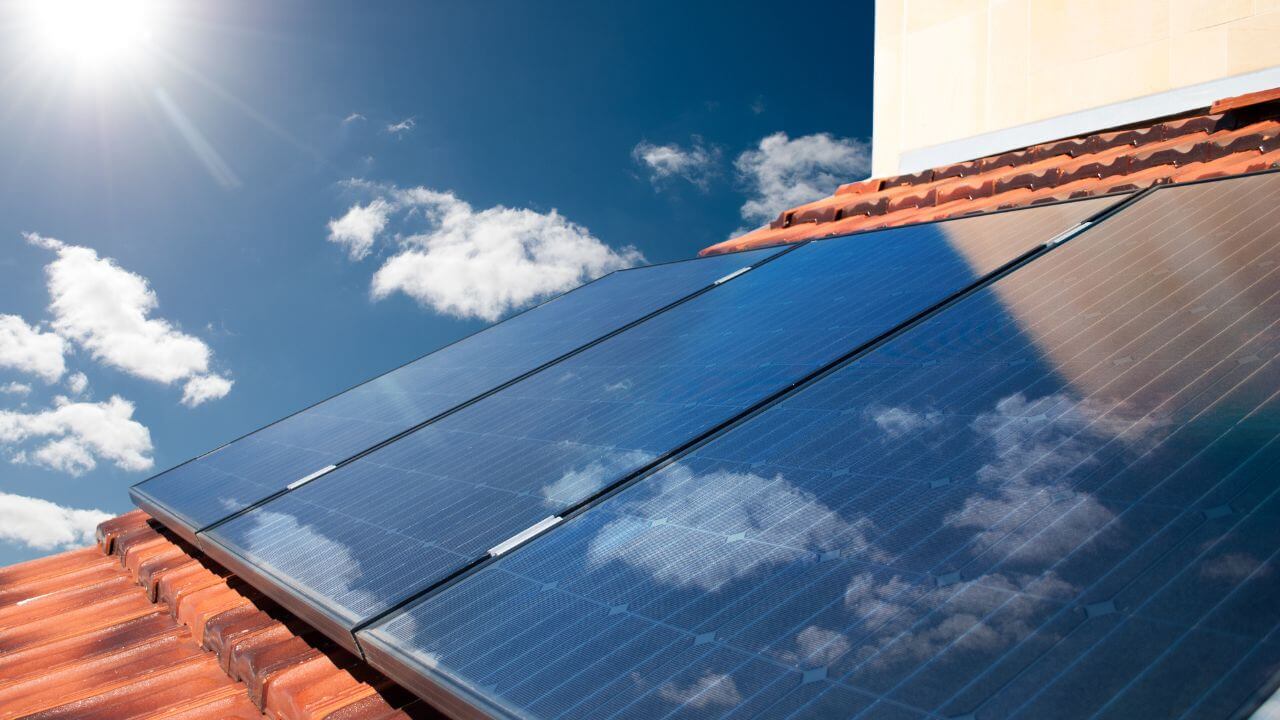Boosting your home’s value with solar energy serves as an asset enrichment and a gesture of environmental stewardship. Integrating a solar energy system can considerably diminish your electricity expenses while possibly being eligible for governmental grants and tax deductions. Solar installations can augment your home’s resale worth, drawing the attention of eco-aware buyers looking for energy-saving residences. Adopt the essence of solar energy to reap fiscal gains, foster a greener tomorrow, and position your home as a coveted entity in the property marketplace.
I. Understanding Solar Energy Systems
Enhancing the value of your home through solar energy benefits your property and our planet. Setting up a solar system will decrease your monthly electricity bills and might even make you eligible for government tax reliefs and rewards. Plus, with solar panels, your home’s resale price can rise, appealing to green-minded buyers looking for energy-smart homes. Turn to solar energy to gain financial advantages, promote a greener tomorrow, and elevate your property’s appeal in the housing market.
I. Learning the Basics of Solar Energy Systems
A. Solar energy system categories
There are two types of solar systems: photovoltaic (PV) and solar thermal.
Solar panels made from semiconductor materials convert sunlight into electricity. These panels produce direct current (DC) energy, which is then changed into alternating (AC) energy for household use. In contrast, solar thermal systems capture sunlight to warm a liquid, usually water or air, and this heat can then be used for warm water, room heating, or even cooling purposes. While photovoltaic systems center on producing electricity, solar thermal ones aim to provide heat solutions.
B. Key parts of a solar energy setup
Most solar setups have three main parts: solar panels, inverters, and batteries. Solar panels harness the sun’s rays and turn them into direct current (DC) electricity. The role of inverters is to change this DC electricity into AC, which matches the type used by home gadgets and the broader power network. Batteries act as storage, keeping any surplus energy from the panels for times when it might be needed, like during the night or cloudy days. Recognizing these components helps you understand the workings of solar energy setups and guides you in making informed choices for your property.
C. Things to ponder when opting for a solar energy setup
The sunlight your location receives directly affects how well your solar panels function. Your roof’s health is equally important, as it must be robust enough to hold the panels. If your roof is deteriorating, you might need to fix or replace it prior to panel installation. Furthermore, your financial capacity will dictate the scale and variety of the solar setup you can go for. By bearing these considerations in mind, you’ll be better positioned to pick the ideal solar setup, making the most out of its perks for your home.
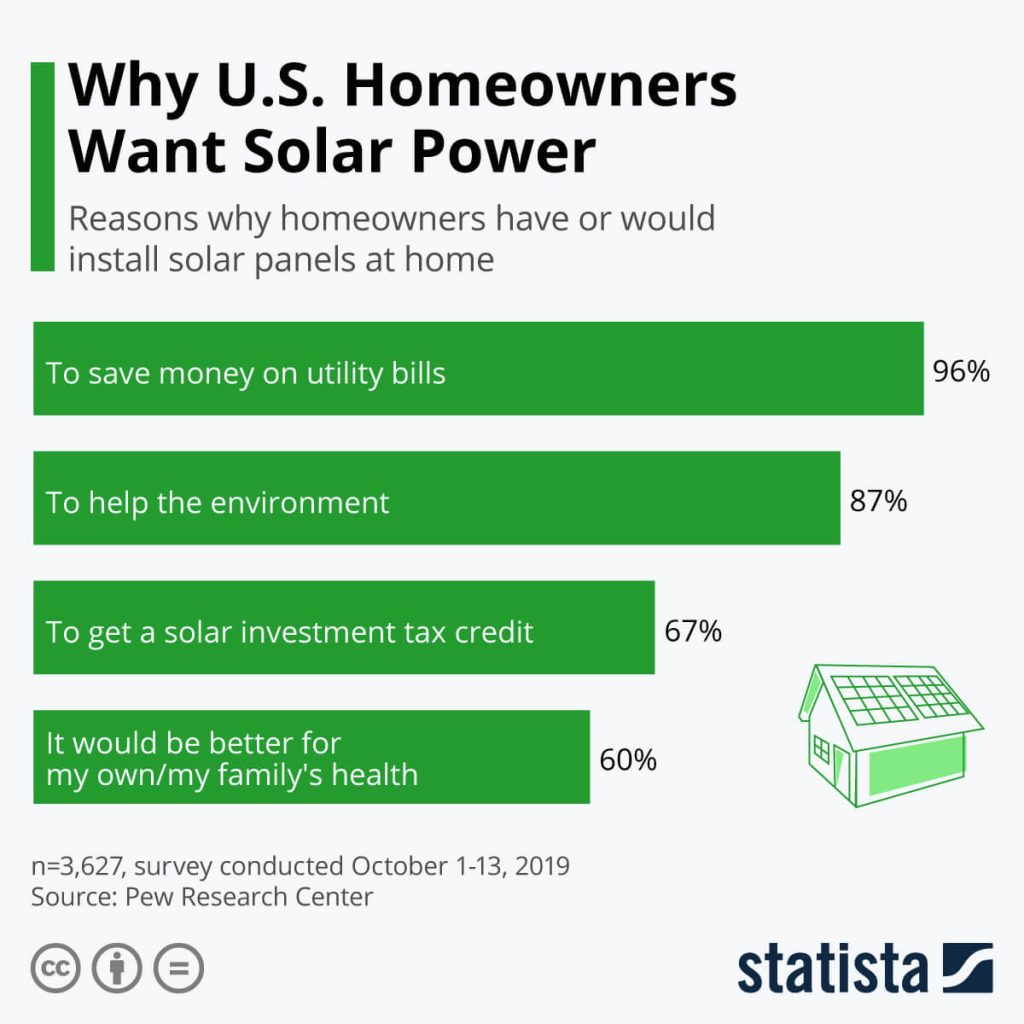
Credit: statista.com
II. The Financial Benefits of Solar Energy
Solar energy offers notable financial benefits for homeowners. You can significantly lower your energy bills by generating your electricity, potentially even earning credits through net metering. Government incentives, such as the Federal Investment Tax Credit (ITC) and various state and local programs, help make solar installations more affordable. Additionally, solar systems can boost your home’s resale value, as many buyers appreciate the long-term energy savings and eco-friendly aspects. System size, age, and location can impact the value increase. By investing in solar energy, you’re not only supporting a greener future but also making a wise financial decision.
A. Reducing energy bills with solar power
1. The Concept of Net Metering
A net metering arrangement is a type of billing arrangement between the owner of a solar energy system and the electric utility company. In the event that your solar panels output more electricity than your home needs, the surplus energy is channeled back into the public grid. As a token of gratitude, your electricity bill gets a credit. On the flip side, if your panels don’t produce sufficient electricity, you can use the accumulated credits to draw power from the grid without incurring extra charges. This system aids homeowners in equating their energy usage with their production over time, optimizing solar power usage and slashing electricity costs.
2. Prolonged Savings through Solar Energy
Choosing solar energy is opting for a durable savings mechanism. Here’s why: solar panels have a commendable lifespan, often stretching between 25 to 30 years. Throughout this period, they tap into the sun’s energy, converting it into electricity for your home, decreasing your dependence on the communal grid. This naturally results in notable year-over-year savings on your electricity bills. The initial investment for solar systems might seem steep, but the cost seems justified when balanced against the enduring savings. Additionally, with rising conventional energy prices, having a consistent and sustainable solar energy source means you’re insulated against fluctuating power costs. Embrace solar energy for predictable bills and eco-friendly power!
B. Government Boosts: Tax Deductions and Incentives
Tax reductions and incentives substantially lessen the financial burden of installing solar panels for homeowners. A key advantage is the Federal Investment Tax Credit (ITC), allowing homeowners to deduct a certain percentage of their solar setup costs from their federal taxes. This essentially makes your solar transition more pocket-friendly. But that’s not all. Numerous other perks, ranging from state to local tiers, like cash rebates, exemptions from property taxes, and waivers on sales taxes, further sweeten the deal. Such benefits not only make the shift to solar energy financially appealing but also champion a greener, cost-effective living.
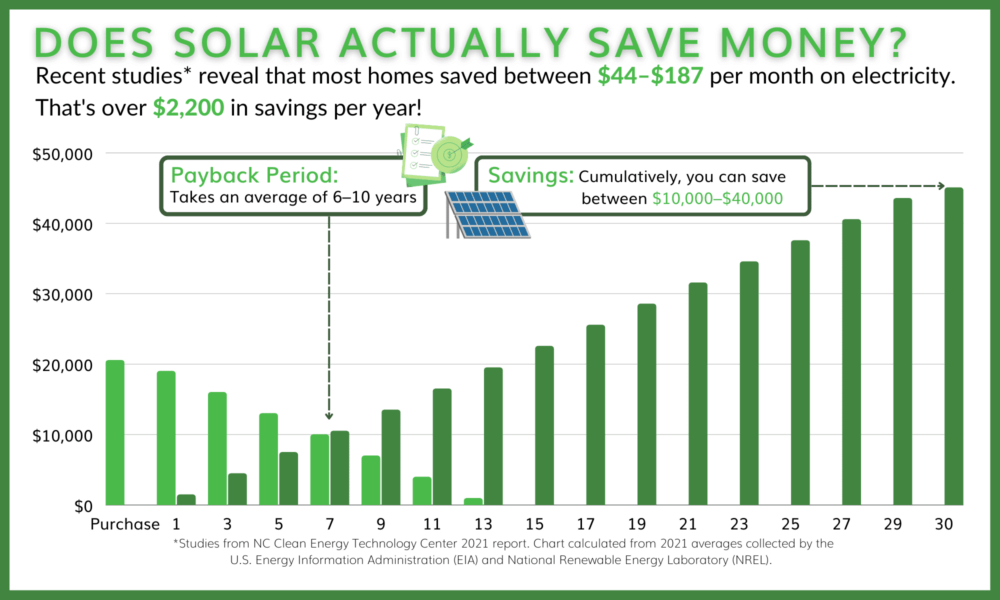
Credit: marketwatch.com
C. Increased home resale value
Factors affecting the value increase
The augmentation in your home’s worth owing to solar panels is subject to a variety of factors. Firstly, the solar system’s magnitude is pivotal, where expansive systems yield more energy, translating to elevated savings and enhanced allure to prospective purchasers. The system’s age is another determinant, with recent setups demonstrating higher efficacy and demanding lesser upkeep. Furthermore, geographical positioning is vital, as properties located in regions graced with abundant sunlight or areas grappling with steep electricity charges reap more dividends from solar energy. Acquainting yourself with these factors enables you to judiciously decide on solar panel installations to amplify your home’s worth.
Studies supporting solar energy’s impact on home value
Many studies and analyses underscore that properties equipped with solar energy systems usually fetch a higher market price than those lacking such setups. This isn’t surprising, given that solar energy offers a respite to your budget by curbing energy expenses and fostering environmental well-being. While the extent of the value augmentation can be influenced by variables like the system’s size, age, and locale, generally, embracing solar energy serves dual purposes – facilitating savings on power expenditures and potentially magnetizing buyers with a penchant for green energy in the future.
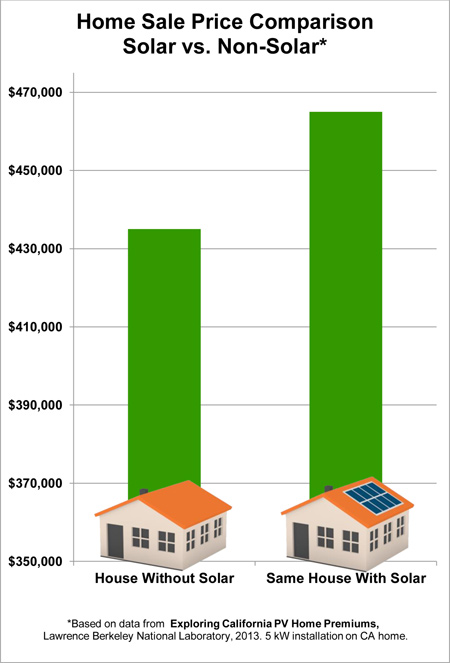
Credit: thesmarthomedecor.com
Attracting eco-conscious buyers
Securing the attention of buyers with an ecological bent is another merit of introducing a solar energy mechanism in your residence. With the escalating realization of the adverse repercussions of fossil fuels, a rising number of individuals are veering towards sustainable dwelling alternatives. Properties endowed with solar panels cater to these buyers, who accord higher significance to green attributes and energy thriftiness. These buyers are often adept at acknowledging solar power’s extended savings and ecological advantages, making them prone to shelling out an extra sum for a home outfitted with solar facilities. Thus, venturing into solar energy escalates your property’s worth and broadens its market attractiveness to a burgeoning segment of environmentally conscious home seekers.
In Conclusion
To wrap up, integrating solar energy emerges as a prudent choice for homeowners aspiring to enhance their asset value while fostering positive environmental impacts. By tapping into the sun’s renewable energy, homeowners can relish diminished utility bills, appreciate a surge in property valuation, and utilize government perks, thus mitigating the financial strain of adopting solar energy. Adopting solar power also fosters a sustainable energy trajectory and diminishes our communal carbon footprints. I urge homeowners to delve into this renewable energy avenue as a judicious and eco-friendly investment with promising returns in the long haul.
